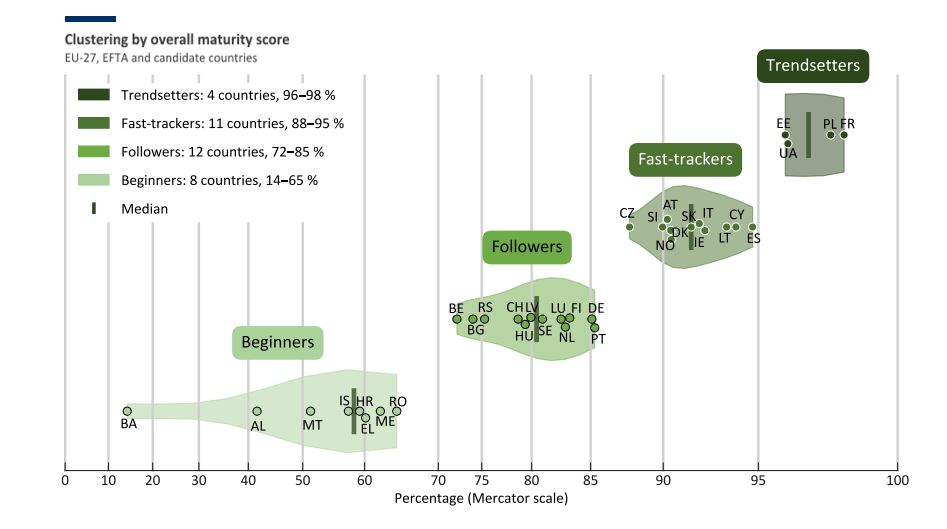Poland ranks second in Europe in terms of the openness of public data, according to the European Commission’s annual Open Data Maturity report.
It measures the progress of 35 European countries – all 27 EU member states plus Iceland, Norway, Switzerland, Bosnia and Herzegovina, Montenegro, Albania, Serbia and Ukraine – in making public sector information available and stimulating its reuse, in line with the EU’s open data directive.
The countries were evaluated in areas such as open data policy, the economic and social impact of open data, data quality and open data portals.
The top four countries were France (which scored 98.3%), Poland (97.9%), Ukraine (96.3%) and Estonia (96.2%). That quartet were named in the report as “trendsetters” in data openness. The worst performers were Bosnia and Herzegovina (14.3%), Albania (41.7%) and Malta (51.3%).

Source: 2023 Open Data Maturity report
Poland’s score improved by three percentage points from last year, when it had come third in the ranking.
In three of the surveyed areas – openness policy, impact of open data and portal – Poland this year ranked first. Compared to last year, Poland’s performance improved in the areas of policy, the impact of open data and data quality.
The country was praised for cultivating data openness on a local level through several local open data portals. Additionally, local authorities are actively encouraged to publish their open data on the national open data portal dane.gov.pl.
A consortium of Polish research centres have launched a project to create a "Polish ChatGPT".
They say that existing AI systems have been trained with little Polish content, resulting in knowledge gaps and linguistic errors https://t.co/buqSBedbBR
— Notes from Poland 🇵🇱 (@notesfrompoland) December 4, 2023
The report also noted that Poland has “a network of open data officers” and that each government ministry appoints civil servants to oversee the implementation of the open data programme.
“Poland is a trendsetter in opening up data,” said Krzysztof Gawkowski, digital affairs minister in the new government that took power last month following eight years of rule by the Law and Justice (PiS) party.
“We are a strong European leader from whose knowledge and experience other countries can take a good example,” he added.
There have been reports of problems with the state mobile app that allows people to present an electronic version of their ID card when arriving to vote.
The government's IT office says that when the system is overloaded users can use an offline version https://t.co/lscUqGESjG
— Notes from Poland 🇵🇱 (@notesfrompoland) October 15, 2023

Notes from Poland is run by a small editorial team and published by an independent, non-profit foundation that is funded through donations from our readers. We cannot do what we do without your support.
Main image credit: Campaign Creators / Unsplash

Alicja Ptak is deputy editor-in-chief of Notes from Poland and a multimedia journalist. She has written for Clean Energy Wire and The Times, and she hosts her own podcast, The Warsaw Wire, on Poland’s economy and energy sector. She previously worked for Reuters.



















